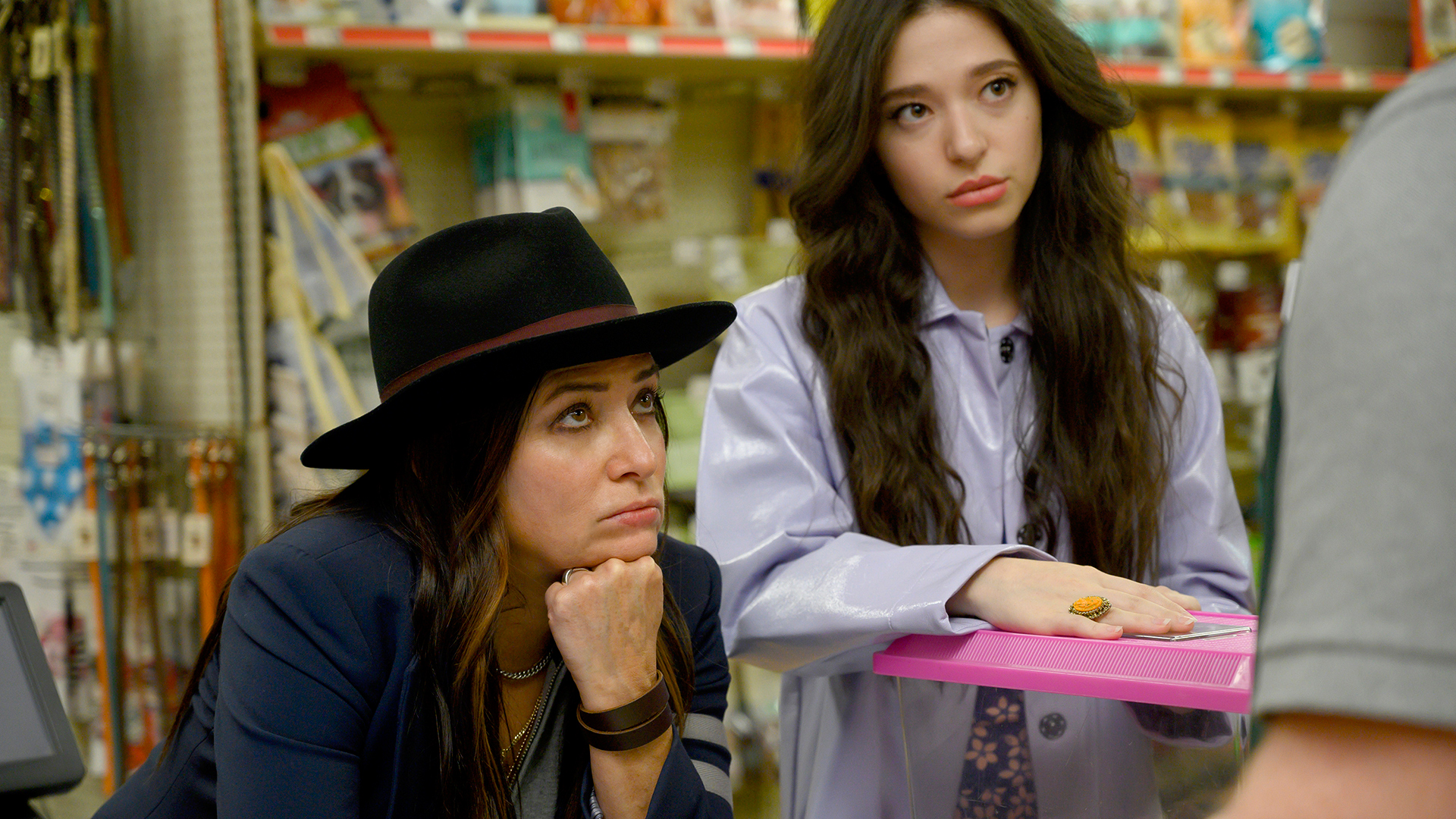
“Better Things:” Your Jewish and Frankly Feminist Review
As a feminist viewer, I find the show deeply comforting. All mothers, Sam pronounces in a particularly moving moment, are single mothers.
But it’s not exactly true: Sam is a single mother. I am not. But I still agree with her battle cry that women need to support each other, that women – in her playful reclaiming of terms – need to be brothers for one another. Sam’s chosen family is a tight knit group of women (and a gay best friend, of course) who are indeed brothers to each other, in good times and bad.
Coming at it as a Jewish feminist, the show can be more challenging. It’s Jewish – so Jewish – but also not quite. Sam has got the right words. (Mensches abound). She’s got the cultural referents. She cooks and feeds others all the time, and in her world, that is absolutely a spiritual activity.
She and her girls spit on their fingers three times to ward off the evil eye – often in unison – on the regular. But it’s all a bit of a muddle. And Adalon knows it. She plays with it, winking to the audience with a character named Chaya whose name no one can pronounce, a phenomenon familiar to many blessed with the hard Ch in their names. (As my friend Chavi says, “at this point I’ll answer to anything but Harvey.”)
Sam’s middle child Frankie requests a quinceañera for her 15th in lieu of the bat-mitzvah she bypassed at 13. Sam is understandably uncomfortable with the appropriation of a life cycle event not her own, but navigates this by joining with her gardener, to throw a joint event for the coming of age of their daughters. It’s still weird, but maybe in a nice way? (Maybe? YMMV, but it is an event of great joy and great cultural exchange.) It’s no longer a quinceañera, now, but a Batceañera, with a few tallitot in the background and a combining of ritual. Some of it wrong. Why oh why does Frankie break a glass at the end? It’s a great shot of everyone yelling mazel-tov but no one got married. Is Adalon repurposing this powerful ritual moment, or does she – or the Jewishly muddled Fox family – just not know?
In the end, it doesn’t matter. The details are very much not the point. What matters is the coming together, the loving, the fighting, the celebrating. What matters is the life. That’s the story of the show, and that’s the story of the water in the show, from the relentless rain so desperately needed in drought-ridden LA, or in the swimming pool of that final, perfect melancholic scene of the season, or the endlessly joyful shots of the girls dancing on the beach. In the end, it stops raining. So Sam and her family go swimming.



